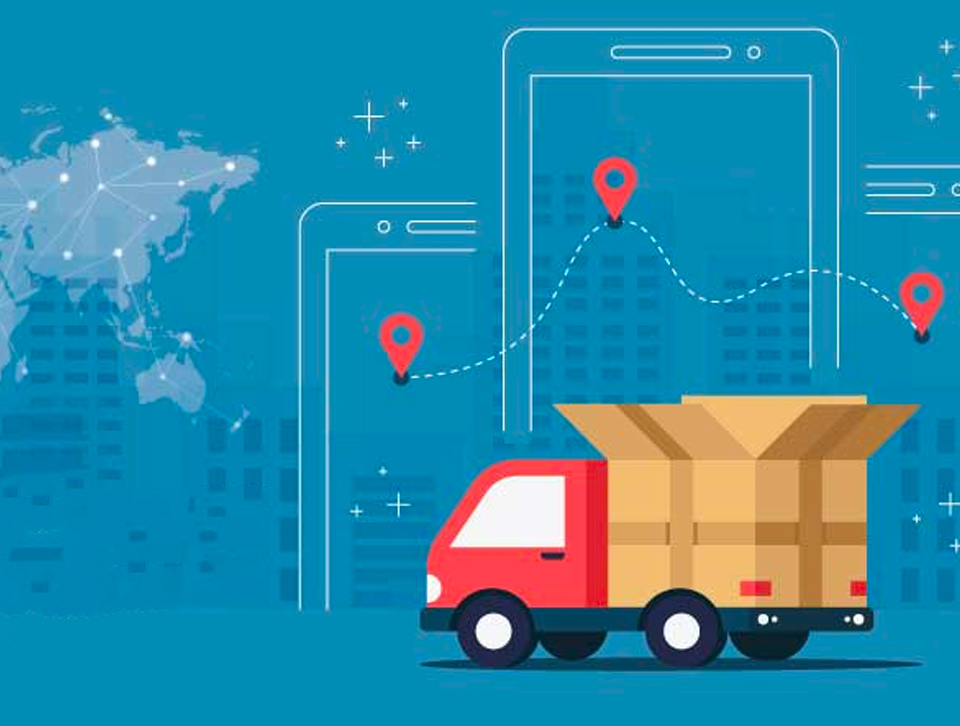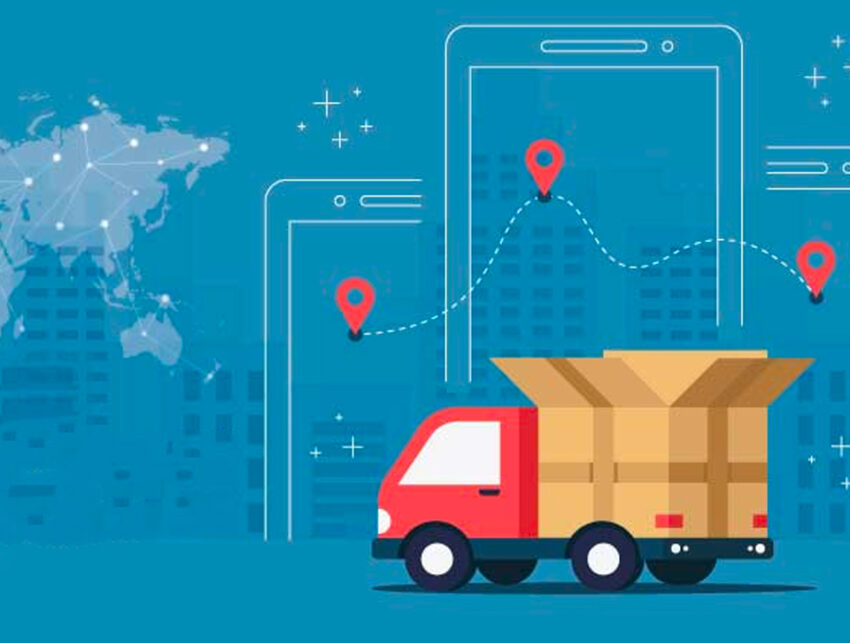IoT or the Internet of Things has come up as a game-changer in the transportation and logistics industry. In the supply chain, the IoT can enable machine-to-machine connection that helps with a host of logistical processes. For instance, it enables shipments, containers, vehicles, loading equipment, and any other device and asset to communicate with each other. Modern cutting edge technologies like IoT have revolutionized this industry and at the present time, there are at least 10 billion devices connected by IoT. In the next five years, this number will increase to 22 billion. So how will IoT alter the logistics sector in the coming years? Read on to find out.

The goal of IoT in the freight forwarding industry
Logistics companies are increasingly using IoT for operation enhancements. The IoT based technologies are being implemented in this industry with the following objectives in mind:
-
Improved security of the cargo at warehouses
IoT-connected platforms allow freight companies to monitor whoever is getting in and out of the warehouse. It enables them to track the inventories and even sends an alert to the warehouse manager in case of missing items. For instance, the connected CCTVs permit the warehouse operators to remotely lock the facility, and perform asset tracking.
-
Data collection and end-to-end product tracking
One of the most important functions of IoT technology is to collect all forms of data. This data can include but is not limited to temperature changes, cargo location, cargo status, container status, energy levels, or suspicious activity. Enhanced transparency of the cargo is the primary goal of IoT in the freight forwarding industry. In other words, it allows you to track your shipment status right from the warehouse until it reaches the customer’s destination.
-
Providing logistics companies with advanced analytics
IoT not only collects and reports the data but also automatically stores them. The companies use this data for research and forecasting purposes. Putting it simply, this technology offers a holistic approach to supply chain management. IoT implementation will allow the logistics managers to know things such as worker efficiency, environmental condition during deliveries, the number of items in the warehouse, etc. It can even track down the cases of theft and forecast an increase in demand.
-
Enhancing the overall process of delivery
There are many ways in which IoT improves the delivery management process. To begin with, the GPS sensors and RFID tags allow the freight forwarders to track the cargo till it reaches the consignee. Additionally, the connected sensors allow businesses to get real-time location info. This allows them to know if the weather conditions might anyway impact the delivery process and make alternative arrangements.
Application of IoT technology in the transportation and logistics industry
-
Optimized warehousing
The sector which most benefits from the application of IoT is the warehousing industry. IoT-enabled sensors allow the warehousing managers to main a uniform temperature and humidity level throughout the storage unit. Moreover, close monitoring of your facility allows you to detect fire and security issues. Multinationals like Amazon are using now using IoT-powered robots to move and retrieve items in their storage facilities. Moreover, the connected sensors can also detect the number of items in the warehouses. This allows the warehouse managers to know their inventory status. The use of IoT in warehousing is extremely beneficial if you are storing perishable items. Lastly, IoT in warehousing allows the managers to easily observe and coordinate the processes for more seamless operation.
-
Real-time fleet management
Smart fleet management is possible one of the most useful applications of IoT in the freight forwarding industry. The vehicles these days can be fitted with sensors and devices that collect real-time info about the vehicle condition, driver behavior, vehicle location, amount of fuel, etc. Furthermore, the sensors can also be used to maintain the right temperature and humidity level within the trucks. This can be very useful for the transport of pharma shipment, perishable shipment, or any other temperature-sensitive cargo. There are even devices that can rectify the situation to maintain the optimum temperature level.
IoT will give you timely updates about every aspect of your fleet including traffic situation and even your driver’s health. Having access to all these important data will give you a clear idea of how your resources are being used and what can be done to improve efficiency. It helps to lower delivery time, optimize the utilization of resources, and augment the safety of your driver and your cargo.
-
Product tracking
Enhancing the transparency of the delivery operations is yet another important reason why you should consider implementing IoT technology. IoT not only collects a vast amount of data from diverse sources but also creates easy-to-use dashboards where you can view all sourced data. Moreover, integrating all the different stages of logistics management into one user-friendly application come with a unique set of advantages. Now you will have all the cargo-related data at your fingertips. This will allow you to tend to all your clients’ requirements. Cargo tracking and container tracking facilities are surely the easiest way of getting real-time information about your shipment status.
-
Forecasting demand
The application of IoT in freight forwarding will help you catch on to demand. This can enormously help you with the logistics management process. IoT-powered devices can forecast demand by analyzing several factors like market trends, customer behavior, customer spending pattern, preferences, etc.
-
Predictive maintenance
Big logistics companies with large fleets of vehicles, find it difficult to optimize their maintenance expenses. They stand to lose thousands of dollars because of technical glitches, and unplanned downtime. This is where predictive maintenance comes into the picture. The sensors allow you to monitor the temperature level, noise, vibration, and the rest of the parameters thereby enabling you to detect the first signs of malfunction. Additionally, it also helps you lower the number of physical inspections of vehicles and storage facilities.
-
Last-mile delivery solutions
The last-mile delivery sector is one area that is going to be significantly altered by IoT-enabled platforms. For instance, IoT technology will expedite the process of same-day delivery by automating the end-to-end workflow. Once the bulk of the supply chain operations get digitized, we will have increased opportunities for quick last-mile delivery with the use of drones, smartphones, and smart buttons.
It is time for independent freight forwarders to come up with holistic strategies for their IoT initiatives. Digitization has broken new ground and has taken logistics management to the next level. Therefore proper care should be taken with regards to its application. Also, it is more important than ever to impart digital training to your workforce.


